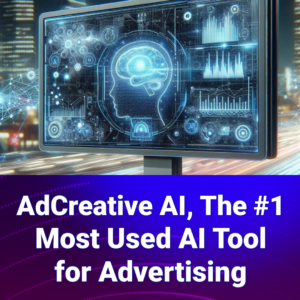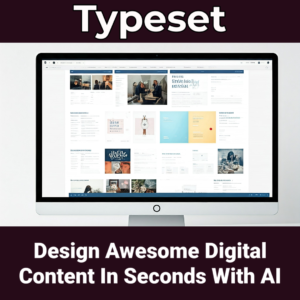Savvy marketers know Artificial Intelligence (AI) is no longer just a futuristic idea when it comes to consumer behavior. It’s a reality that’s changing how we shop and how brands market their products.
AI tools in consumer purchasing decisions are reshaping the retail world, offering new opportunities for both consumers and brands. This article explores the growing use of AI tools by consumers and their big impact on brand marketing strategies.
The Rise of AI Tools in Consumer Decision-Making
AI tools are becoming a main source of information for consumers when deciding to buy products. A survey by Storyblok shows that nearly one in five consumers now rely on AI tools for their purchasing decisions. This shift is not just a trend but a big change in consumer behavior that brands need to understand and adapt to.
Survey Insights from Storyblok
The survey by Storyblok involved 200 businesses and 200 consumers, giving a clear view of the current landscape. The findings highlight the growing reliance on AI tools for making informed purchasing decisions.
Consumer Trust in AI Tools
One of the most surprising insights from the survey is that 15% of consumers trust AI tools the most for online information. This trust in AI tools is higher than traditional sources of information, showing a big shift in consumer behavior.
Comparison with Traditional Information Sources
While 37% of consumers still trust Google, 24% prefer marketplaces like Amazon, and 23% rely on company websites, AI tools are quickly gaining ground. This comparison shows the growing influence of AI in the decision-making process.
The Shift in Consumer Behavior
Consumers are increasingly using AI as their main source of information, showing a big shift in behavior. This change is driven by the ability of AI tools to provide personalized and accurate information, making the shopping experience more efficient and enjoyable.
AI as the Primary Source of Information
AI tools are now a go-to for many consumers, providing tailored recommendations and insights that are more relevant and timely than traditional sources.
The Role of AI in Online Shopping
AI improves the online shopping experience by offering personalized recommendations, predicting consumer preferences, and providing real-time help. This level of personalization is something that traditional methods can’t match.
Consumer Preferences and Trust Levels
Understanding consumer preferences and trust levels is crucial for brands to adapt their strategies effectively. Brands that can use AI to meet these preferences will be better positioned to succeed in the competitive market.
Brand Adaptation to AI Trends
Brands are recognizing the need to adapt to the growing influence of AI on consumer behavior. This adaptation involves rethinking marketing strategies, investing in new technologies, and training staff to use AI effectively.
The Impact of AI on Marketing Strategies
63% of brands report that AI is impacting their content marketing, SEO strategies, and website functionalities. This impact is not just limited to minor adjustments but involves big changes in how brands approach marketing.
Survey Results on Brand Adaptation
The survey highlights how brands are adjusting their strategies to include AI. These adjustments are necessary to stay competitive and meet the changing needs of consumers.
Content Marketing and SEO Adjustments
Brands are rethinking their content marketing and SEO strategies to align with AI trends. This involves creating content that is optimized for AI tools and using AI to improve SEO performance.
Website Functionality Enhancements
Improving website functionalities to include AI tools is becoming a priority for many brands. This includes implementing AI-driven chatbots, personalized recommendations, and other features that enhance the user experience.
Uncertainty and Challenges for Brands
Despite the growing influence of AI, some brands remain uncertain about its impact. This uncertainty can be a barrier to effective adaptation and using AI to its full potential.
Brands Uncertain About AI Impact
27% of brands are unsure how AI will affect their marketing strategies. This uncertainty can come from a lack of understanding of AI technologies or concerns about the cost and complexity of implementation.
Strategies for Overcoming Uncertainty
Brands need to develop strategies to overcome uncertainty and use AI effectively. This includes investing in education and training, partnering with AI providers, and conducting pilot projects to test AI applications.
Case Studies of Successful Adaptation
Looking at case studies of brands that have successfully adapted to AI can provide valuable insights. These case studies can serve as a roadmap for other brands looking to use AI in their marketing strategies.
Redefining SEO and Marketing Strategies
AI is changing SEO and marketing strategies, requiring brands to stay ahead of the curve. This involves understanding the new dynamics of SEO and using AI to enhance marketing effectiveness.
The Influence of AI on SEO
AI is expected to have a big influence on SEO practices. This influence is driven by the ability of AI to analyze large amounts of data and provide insights that can improve SEO performance.
Anticipated Changes in SEO Practices
47% of brands expect major changes in their SEO strategies due to AI. These changes include optimizing content for AI tools, using AI for keyword research, and using AI to analyze and improve SEO performance.
Complete Redefinition of SEO Strategies
20% of brands expect a complete redefinition of their SEO strategies to include AI. This redefinition involves a big shift in how SEO is approached, with AI playing a central role.
Investment in AI Technology
Brands are investing in AI technology to stay competitive. This investment is necessary to use the full potential of AI and meet the changing needs of consumers.
Survey Insights on AI Investment
An earlier survey by Storyblok found that 38% of companies are investing in AI technology. This investment is driven by the need to stay competitive and use the benefits of AI.
Partnering with AI Providers
30% of companies are partnering with AI providers to enhance their capabilities. These partnerships provide access to advanced AI technologies and expertise that can drive innovation and improve marketing effectiveness.
Training Staff on AI Capabilities
29% of companies are training their staff on AI capabilities to ensure effective implementation. This training is crucial for using AI to its full potential and staying competitive in the market.
Popular Uses of AI in Marketing
AI is being used in various aspects of marketing to enhance effectiveness. These uses include content creation, ideation, research, and editing, among others.
Content Creation and Ideation
AI is playing a big role in content creation and ideation. This involves using AI to generate content, come up with new ideas, and streamline the content creation process.
AI in Content Creation
78% of brands use AI for content creation, highlighting its importance. AI can generate high-quality content quickly and efficiently, making it a valuable tool for marketers.
AI for Content Ideation and Research
70% of brands use AI for content ideation and research, making it a valuable tool. AI can analyze large amounts of data to identify trends, generate new ideas, and provide insights that can inform content creation.
AI in Content Editing
67% of brands use AI for content editing, streamlining the process. AI can identify errors, suggest improvements, and ensure that content is high-quality and engaging.
Enhancing User Experience with AI
AI is enhancing user experience by providing personalized and customized interactions. This involves using AI to understand user preferences, provide tailored recommendations, and improve customer interactions.
Personalization and Customization
AI allows for personalized and customized interactions, improving user experience. This involves using AI to analyze user data and provide recommendations that are tailored to individual preferences.
AI-Driven Customer Interactions
AI-driven customer interactions are becoming more common, providing valuable insights. These interactions can provide real-time help, answer questions, and offer personalized recommendations.
Improving Marketing Effectiveness
AI is improving marketing effectiveness by offering data-driven insights and recommendations. This involves using AI to analyze marketing data, identify trends, and provide insights that can inform marketing strategies.
Expert Insights on AI Adoption
Experts emphasize the importance of adopting AI to stay competitive. This involves understanding the benefits of AI, overcoming challenges, and using AI to its full potential.
Thomas Peham’s Perspective
Thomas Peham, VP of Marketing at Storyblok, provides valuable insights on AI adoption. His perspective highlights the importance of understanding customer interactions and adapting to rapid AI adoption.
The Necessity for Strategy Overhaul
Peham emphasizes the need for brands to overhaul their marketing strategies to keep pace with AI trends. This involves rethinking traditional approaches and using AI to enhance marketing effectiveness.
Understanding Customer Interactions
Understanding customer interactions is crucial for brands to adapt successfully. This involves using AI to analyze customer data, identify trends, and provide insights that can inform marketing strategies.
Adapting to Rapid AI Adoption
Brands need to adapt quickly to the rapid adoption of AI by consumers. This involves staying informed about AI trends, investing in AI technologies, and training staff to use AI effectively.
Additional Insights from Industry Research
Industry research provides further insights into the impact of AI on consumer behavior and marketing. These insights highlight the growing awareness and usage of AI tools and the innovations in AI-driven consumer products.
Deloitte’s Digital Consumer Trends 2024
Deloitte’s research highlights the growing awareness and usage of generative AI tools. This research provides valuable insights into how consumers are using AI and the impact on consumer behavior.
Awareness and Usage of Generative AI Tools
60% of people in the UK are aware of generative AI tools, and 36% have used them. This growing awareness and usage indicate a big shift in consumer behavior.
Consumer Comfort with AI Technologies
The growing familiarity and comfort with AI technologies among consumers is evident. This comfort is driving the adoption of AI tools and influencing consumer behavior.
Highlights from CES 2024
The Consumer Electronics Show (CES) 2024 showcased numerous AI-driven innovations. These innovations highlight the growing presence of AI in consumer products and the impact on daily life.
AI-Driven Innovations in Consumer Products
AI-driven innovations in consumer products are becoming more common. These innovations include AI-powered home assistants, smart gadgets, and other technologies that enhance daily life.
AI-Powered Home Assistants and Smart Gadgets
AI-powered home assistants and smart gadgets are enhancing daily life. These technologies provide real-time help, automate tasks, and offer personalized recommendations.
AI in Consumer Products
Insights from Altman Solon highlight the use of AI in consumer products. These insights provide valuable information on how companies are using AI for innovation and customization.
Insights from Altman Solon
Altman Solon provides valuable insights into how companies are using AI. These insights highlight the importance of AI in driving innovation and staying competitive.
Leveraging AI for Innovation and Customization
Companies are using AI for innovation and customization in consumer products. This involves using AI to create personalized products, improve user experience, and drive innovation.
Staying Competitive in the Evolving Market
Staying competitive in the evolving market requires proactive adoption of AI. This involves staying informed about AI trends, investing in AI technologies, and using AI to enhance marketing effectiveness.
Conclusion
The future of AI in consumer behavior and marketing is promising. Brands need to embrace AI to ensure continued success in the changing landscape.
Embracing AI for Continued Success
Brands need to embrace AI to ensure continued success in the changing landscape. This involves understanding the benefits of AI, overcoming challenges, and using AI to its full potential.
Final Thoughts and Recommendations
Final thoughts and recommendations for brands looking to use AI effectively. This includes staying informed about AI trends, investing in AI technologies, and training staff to use AI effectively.
FAQs
What is the impact of AI on consumer behavior?
AI is significantly impacting consumer behavior by providing personalized and accurate information, improving the online shopping experience, and influencing purchasing decisions.
How are brands adapting to the growing influence of AI?
Brands are adapting to the growing influence of AI by rethinking their marketing strategies, investing in AI technologies, and training staff to use AI effectively.
What are the popular uses of AI in marketing?
Popular uses of AI in marketing include content creation, ideation, research, editing, personalization, and improving customer interactions.
How is AI redefining SEO strategies?
AI is redefining SEO strategies by providing insights that can improve SEO performance, optimizing content for AI tools, and using AI for keyword research.
What are the challenges brands face in adopting AI?
Challenges brands face in adopting AI include uncertainty about its impact, the cost and complexity of implementation, and the need for education and training.
How can brands leverage AI to stay competitive?
Brands can leverage AI to stay competitive by staying informed about AI trends, investing in AI technologies, partnering with AI providers, and training staff to use AI effectively.













